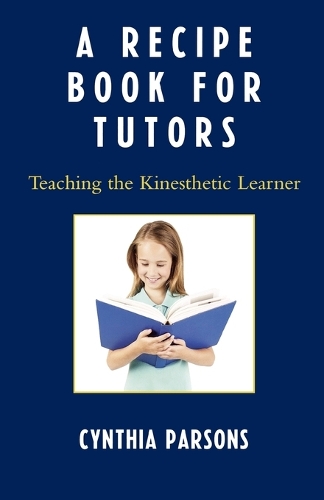
A Recipe Book for Tutors: Teaching the Kinesthetic Learner
(Paperback)
Publishing Details
A Recipe Book for Tutors: Teaching the Kinesthetic Learner
By (Author) Cynthia Parsons
Bloomsbury Publishing PLC
Rowman & Littlefield Education
15th February 2008
United States
Classifications
Professional and Scholarly
Non Fiction
370.1532
Physical Properties
Paperback
142
Width 140mm, Height 218mm, Spine 12mm
195g
Description
We all learn to read and do math using oral, visual, and kinesthetic methods. Some of us favor one method over another, and for the most part group teaching depends heavily on oral/aural and visual methods. Hence, pupils who need kinesthetic instruction don't get enough of it - they don't get the time, supervision, and emphasis they truly need. Very very few individuals who are basically kinesthetic learners choose teaching as a profession at the elementary school level. Most teachers choose teaching because they did learn easily how to read as oral & visual learners, and they sorely need a recipe book to guide them in the appropriate use of kinesthetic teaching methods. They need a recipe book that teaches the teacher how to teach the kinesthetic learner step-by-careful-step!
Reviews
Cynthia Parsons in this new book presents easy to use, easy to do activities that all families (and teachers) can use to help children learn to read and beyond that, take pleasure in wanting to read. In my own experience in designing what I call learning recipes, I have found that kinesthetic strategies so well delineated in this book are very effective. It takes both body and brain to do well. -- Dorothy Rich, Ed. D., founder and president, The Home and School Institute
A child who is a non-reader by third grade wrestles with insecurities, but teachers often only see the acting-out results, not the reasons. Today, public school accountability penalizes non-readers and their teachers, without giving them much help. Cynthia Parsons stands in that childs shoes and shows a deep understanding of the importance of feeling words to many children. She carefully, artfully guides teachers, as well as mentors and tutors, through strategies that will help the child take risks in learning to read and to calculate. At every step, the writing encourages teachers to know when to slow down, speed up, or turn to other methods of instruction. From the beginning, when a child draws letters in sand, to the end, when the child, now a confident reader, wants to turn a favorite poem into a play, a teacher will learn to be as successful as his/her student. This is truly a unique resource. -- Anne Lewis, national columnist for Phi Delta Kappan; education policy journalist
Finally, a no-fail recipe for hands-on learning! Cynthia Parsons makes practical what theorists can only allude to as she folds in the secrets of timing, assurance, and respect. -- Laurie Haas, co-producer, national PBS program Words that Cook! Parenting with Childrens Books
Author Bio
Cynthia Parsons is the former education editor of The Christian Science Monitor
